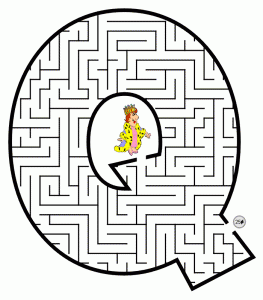Posts Tagged ‘Continuity’
Has God Changed? Apologetics question #4
Slidepack for Apologetics Class
Question on Dispensationalism, Israel and Continuity, part 1
Rob,
how would you reply to the notion that dispensationalism is a relatively new (just over 100 years old according to some) belief, and that it is not biblical in origin? Also, why is it
so important to clarify whether the Bible is referring to Jews or Christians ( or both) when it speaks of the “church”?
Lastly, is 1 Cor. 15:52 the only passage from which to build a theology of the rapture, and specifically a pre-tribulational rapture?
ANSWER:
Ok, I am finally able to get to this – busy week! Now I do not want to just pass the buck here, or inundate you with more reading, but this is a Costco-size can of worms you opened, so a little reading will be necessary.
I want you to go here for a balanced approach at the truth that beliefs held within modern dispensationalism (well defined here) were also held by Church Fathers and many way before the 1800’s. This is more directly approached here (although I do not know this guy or this site very well, he is at least though provoking in the right direction.)
So, look at those in that order – but, as you do, think about this:
– Every system or school of though has a birth. Just because something is systematized more recently does not necessarily make it wrong. There were rocks here before Geology became the system that it is today. Systems classify things, if they are done well. Although it is usually a niche thing, they are still just to be a classificational tool. I mean are we to reject the thoughts and teachings of Calvinism because he was not in the beginning with God?
– Every system also has an off-label use and that is when things often go awry. The system is supposed to be a helpful tool to take a wider breadth of data and be able to look at (parts of) it all at once. It is a “desktop organizer” that can potentially provide one with the insight needed to ask and answer broader questions based on comparative data. So, in Systematic Theology, the sub-categories are definitive of this fact – i.e. angelology, bibliology, ect. Angelology allows one to see all that the Text might say about angels, so one could potentially come to broader conclusions about angels from a more holistic, biblical point of view. But this is very complicated hermeneutically, in that these passages are being drawn from several genres, time periods, contexts – etc. Caution and time needs to be spent with liberty, or the system can be too quick to ask and answer WRONG questions – THEN the off-label use . . .
– The system at some point can stop being a tool and start being the standard. This is when someone takes the system and lays (at times forces) it back over the Text as a whole and then starts running all interpretations of all texts in all subjects through that system. This is unfortunate. It is in this sense that many dispensationalists to some degrees are rightly accused of eisegeting (putting into) the text from a strongly preconceived point of view.
So, all that to say, the system is new in it’s official and current form of organization. That does not in itself make it wrong, for the beliefs existed with many since the second century – just like many who held other beliefs. The problem is when the system gets out of place and is given a Red Bull and takes over. It, and all other systems, are tools and should be seen as such.
The 2nd and 3rd parts of your question to be answered in the coming days . . .
